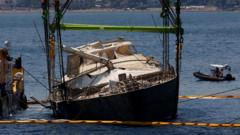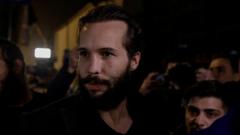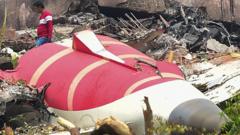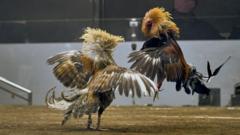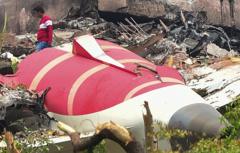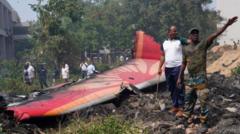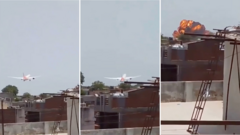The South African government's announcement of a judicial inquiry marks a significant step toward addressing long-standing grievances over the prosecution of apartheid-era crimes, as victims' families seek justice.
South Africa Launches Inquiry into Apartheid Prosecutions
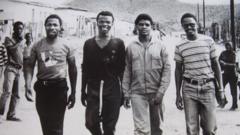
South Africa Launches Inquiry into Apartheid Prosecutions
President Cyril Ramaphosa responds to concerns over political interference in justice for apartheid-era crimes.
South African President Cyril Ramaphosa has declared a judicial inquiry into the alleged political interference in prosecuting apartheid-era crimes, a move made three decades post the end of white-minority rule. This decision comes amidst pressure from a group of families and survivors who have filed a lawsuit against Ramaphosa's government for perceived injustices relating to these crimes, which reportedly amount to damages of $9 million (£6.8 million).
The inquiry stems from the findings of the Truth and Reconciliation Commission (TRC) established in 1996, which revealed severe atrocities like murder and torture throughout the apartheid regime. Although the TRC made significant discoveries, few cases saw prosecution progress, raising concerns among victims and their families regarding the justice system’s effectiveness in addressing the past.
In Ramaphosa’s statement, he emphasized a commitment to unearthing the actual facts surrounding these events, pledging that the matter will be thoroughly examined and appropriately resolved. The inquiry is largely a response to accusations that previous administrations, particularly the African National Congress (ANC), reached secret agreements with the then white-minority government that hindered justice.
Among the plaintiffs in the high-profile lawsuit is the son of anti-apartheid activist Fort Calata, who, along with three others known as the Cradock Four, lost his life at the hands of security forces in an incident that sparked nationwide outrage in 1985. The six former police officers who later admitted their roles in these murders were denied amnesty by the TRC yet faced no subsequent court trials, and all have since passed away.
Critics have long alleged that political motivations have stalled the investigation and prosecution of these historic crimes. In light of the ongoing calls for accountability, the presidency has acknowledged the persistence of alleged improper influences in the justice process, outlining plans for the inquiry's leadership and schedule soon to be revealed.


